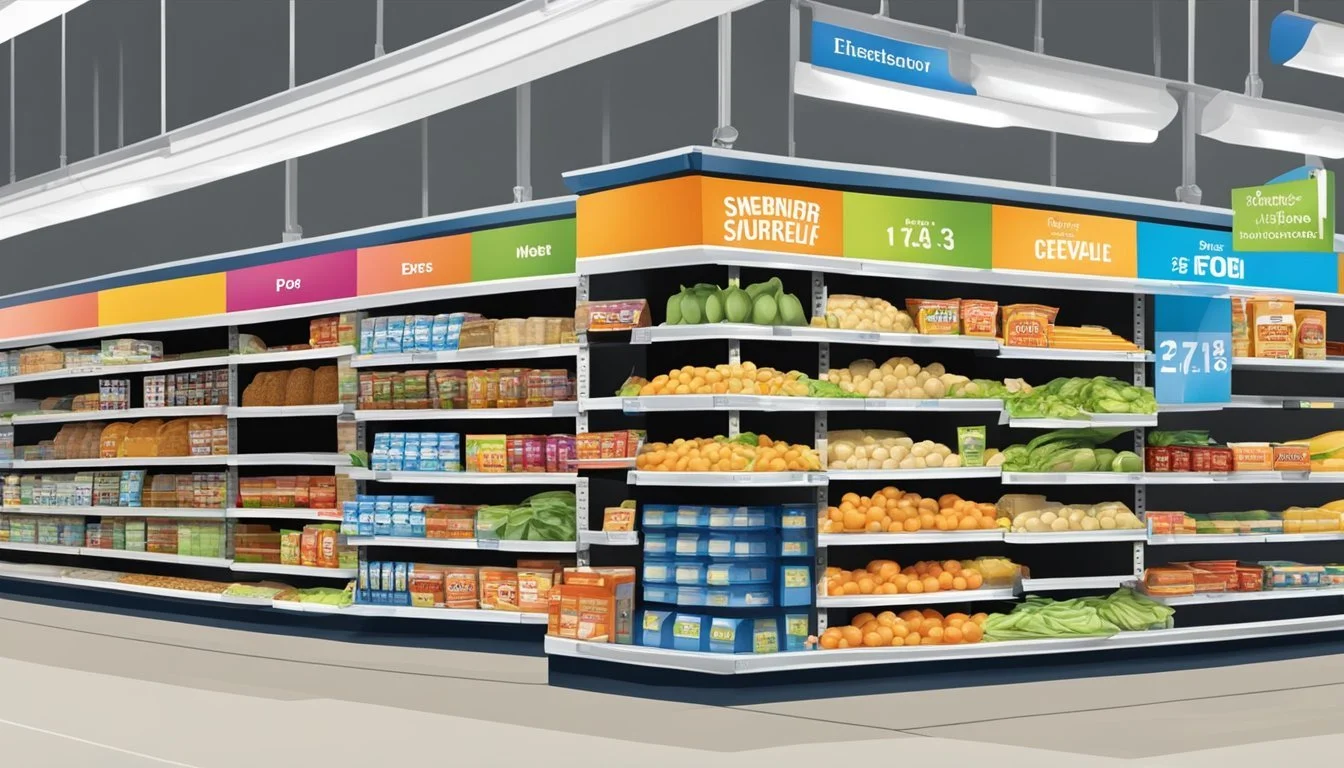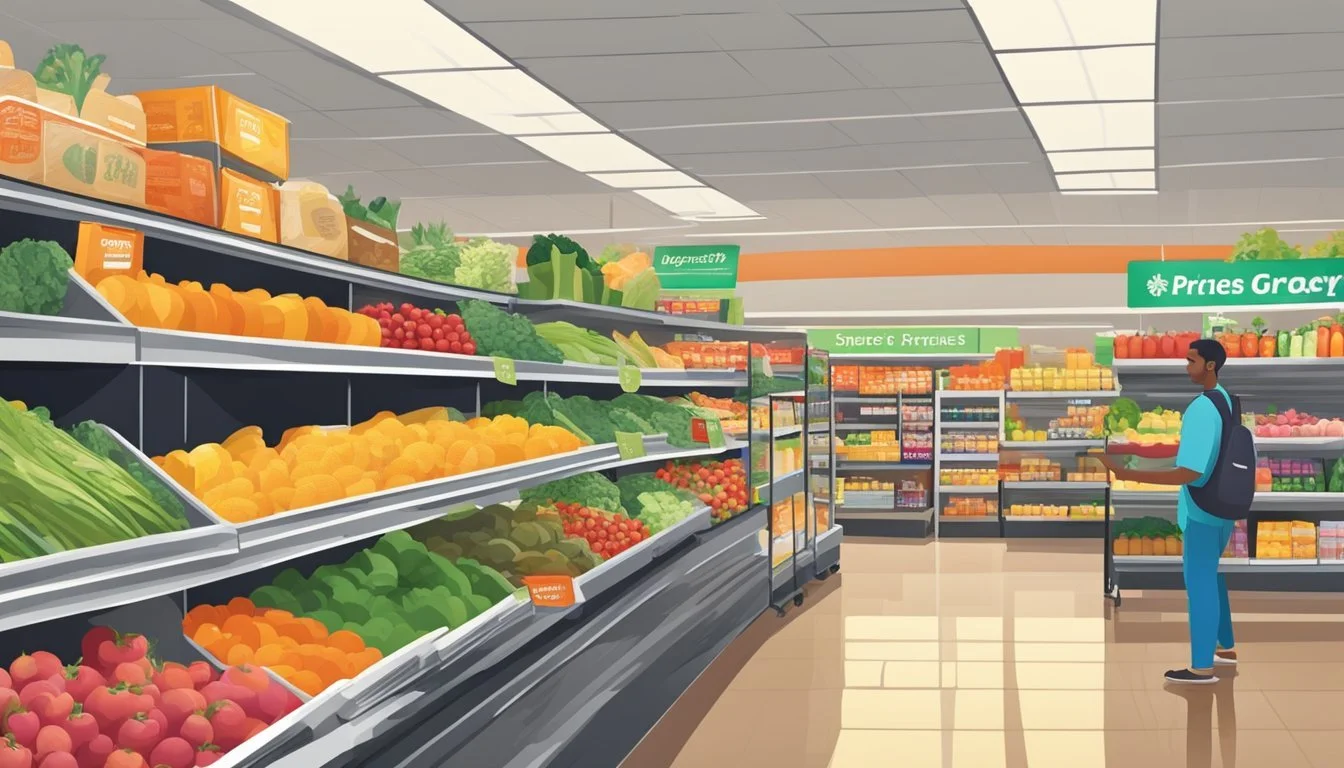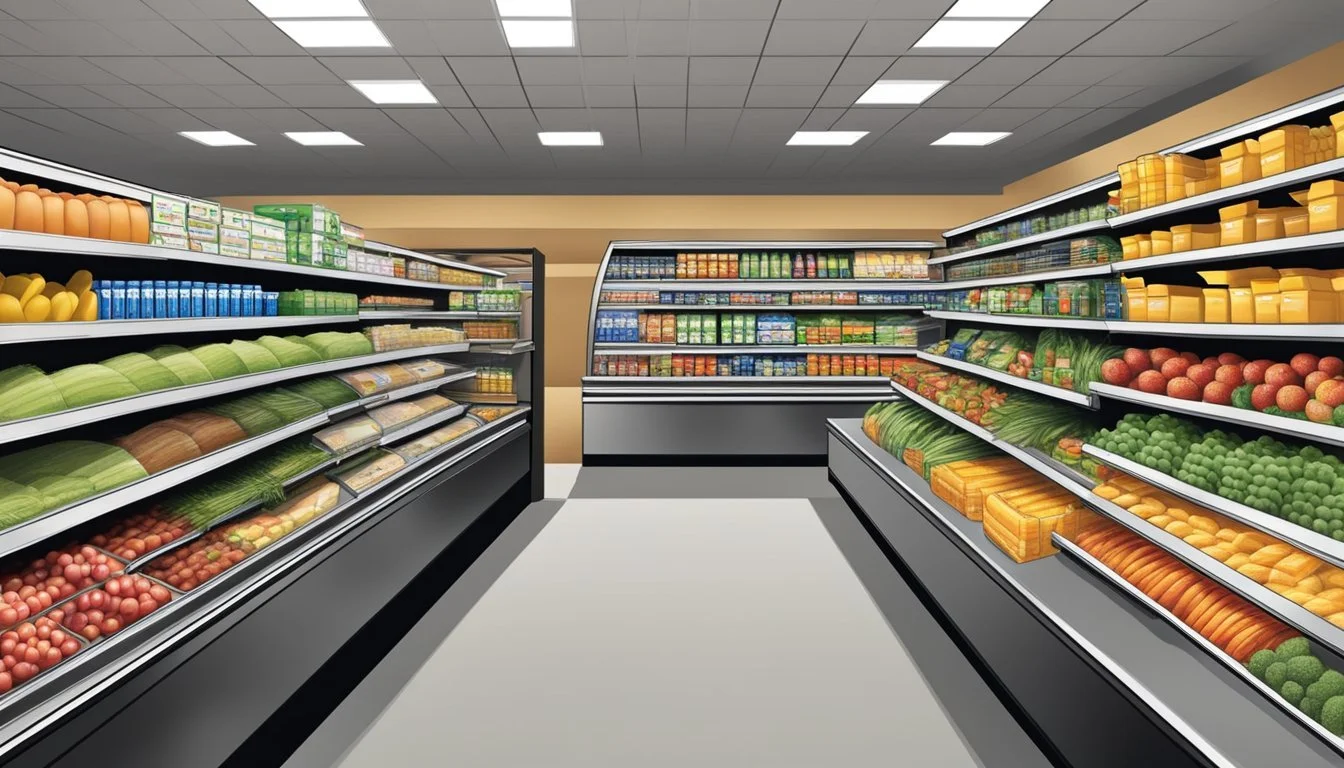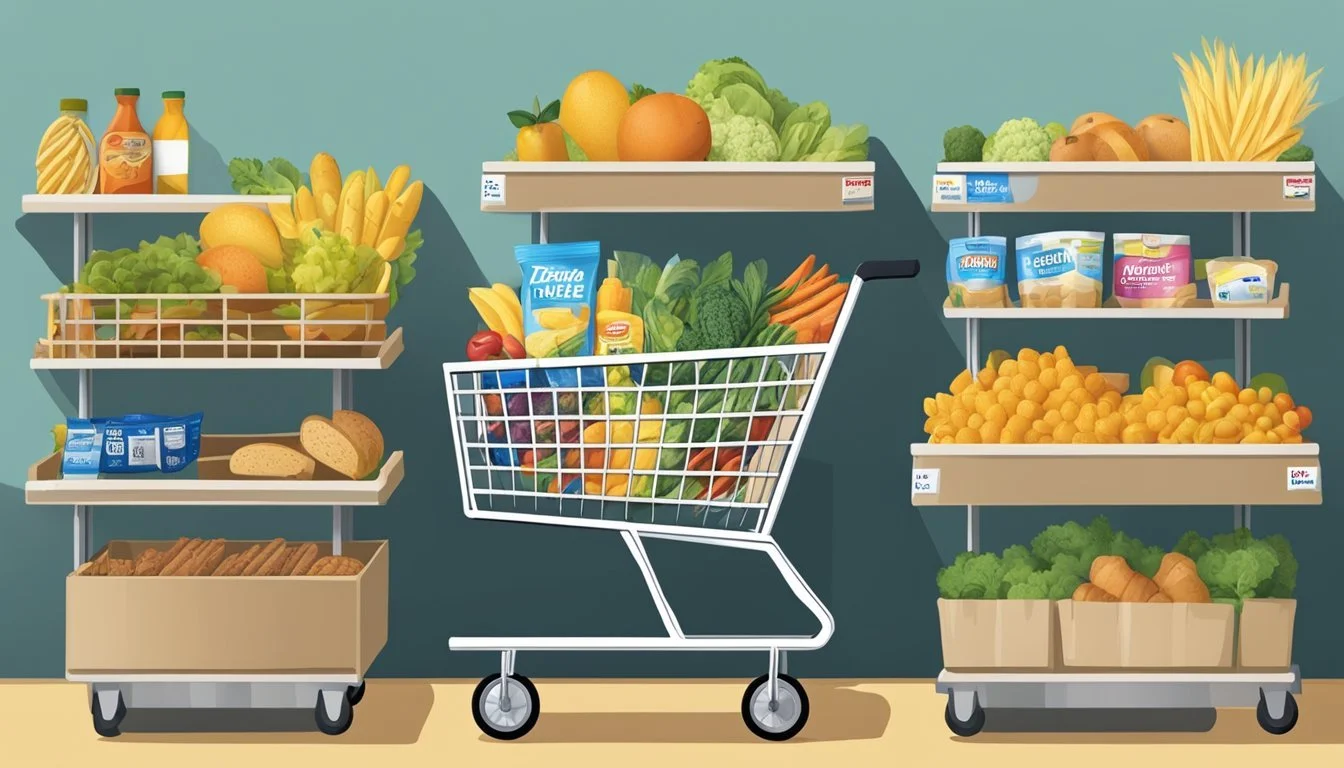Is Food Lion Cheaper Than Meijer?
A price comparison of two popular grocery chains
Food Lion and Meijer are popular grocery chains known for offering competitive prices to budget-conscious shoppers. Both stores aim to provide value, but determining which is cheaper can be challenging due to regional variations and fluctuating promotions.
The price comparison between Food Lion and Meijer is not straightforward, as costs can vary significantly based on location, product selection, and current deals. While Food Lion has a reputation for low prices, particularly in the southeastern United States, Meijer is known for its competitive pricing in the Midwest.
Shoppers looking to maximize their savings should consider factors beyond just base prices. Both supermarkets offer loyalty programs, weekly specials, and store-brand alternatives that can substantially impact overall grocery bills. Comparing specific items and watching for sales at each store may yield the best results for cost-conscious consumers.
Overview of Food Lion and Meijer
Food Lion and Meijer are prominent supermarket chains in the United States, each with distinct histories, regional focuses, and market strategies. These retailers cater to different customer bases and have unique approaches to pricing and product offerings.
History and Business Model
Food Lion began as Food Town in 1957 in Salisbury, North Carolina. It adopted its current name in 1983 and expanded rapidly throughout the Southeast. The company focuses on providing low prices and convenient locations.
Meijer was founded in 1934 in Greenville, Michigan. It pioneered the supercenter concept, combining groceries with general merchandise. Meijer stores are typically larger than traditional supermarkets and offer a wider range of products.
Both chains emphasize value, but Meijer's supercenter model allows for a more diverse inventory. Food Lion maintains a stronger focus on groceries and everyday essentials.
Geographic Presence and Location
Food Lion operates primarily in the Mid-Atlantic and Southeastern United States. It has over 1,000 stores across 10 states, with a strong presence in North Carolina, Virginia, and Georgia.
Meijer's footprint is concentrated in the Midwest. The company has more than 250 stores across six states: Michigan, Ohio, Indiana, Illinois, Kentucky, and Wisconsin. Meijer stores are often located in suburban areas, while Food Lion tends to have a mix of urban and rural locations.
This regional distribution means the two chains rarely compete directly in the same markets. Their distinct geographic focuses shape their supply chains and local product offerings.
Target Demographic and Brand Positioning
Food Lion targets budget-conscious shoppers seeking everyday low prices on groceries. Its smaller store format and focus on essential items appeal to customers looking for quick, convenient shopping trips.
Meijer aims to be a one-stop shopping destination for families. Its larger stores attract customers who prefer to combine grocery shopping with other retail needs. The chain offers a wider selection of non-food items, including clothing, electronics, and home goods.
Both chains emphasize value, but Meijer's broader product range allows it to appeal to a more diverse customer base. Food Lion's targeted approach focuses on competing primarily on grocery prices and neighborhood convenience.
Price Comparison Strategy
Comparing prices between Food Lion and Meijer requires a multi-faceted approach. Shoppers can utilize several strategies to determine which store offers better value for their specific needs.
Pricing Policies
Food Lion and Meijer employ different pricing strategies. Food Lion often uses an everyday low price model, aiming to provide consistent value across their product range. Meijer, on the other hand, may have slightly higher regular prices but offers frequent sales and promotions.
Food Lion tends to focus on keeping prices low on essential items and store-brand products. This approach can benefit shoppers who primarily purchase staple goods and aren't brand-loyal.
Meijer's pricing strategy often includes competitive prices on popular national brands. They may use loss leaders - items priced below cost - to attract customers, expecting they'll purchase other higher-margin products during their visit.
Discounts and Sales
Both chains offer regular sales, but their approaches differ. Food Lion typically runs weekly specials advertised in circulars and online. These deals often focus on seasonal items and popular groceries.
Meijer is known for its "10 for $10" promotions, where select items are priced at $1 each when purchased in multiples of 10. They also frequently offer "Buy 5, Save $5" deals on participating products.
Digital coupons play a significant role in both stores' discount strategies. Shoppers can load these coupons onto their loyalty cards for automatic savings at checkout.
Loyalty Programs and Savings
Food Lion's MVP Card and Meijer's mPerks program offer additional savings opportunities. Food Lion's program provides personalized "MVP Savings" based on shopping history and access to digital coupons.
Meijer's mPerks allows users to earn rewards points on purchases, which can be redeemed for money off future shopping trips. The program also offers personalized perks and exclusive digital coupons.
Both loyalty programs are free to join and can lead to substantial savings over time. Regular shoppers who maximize these programs may find better overall value at their preferred store, regardless of base prices.
Product Assortment and Quality
Food Lion and Meijer offer diverse product selections, with varying approaches to store brands, fresh produce, and meats. Both chains strive to balance quality and affordability across their departments.
Store Brands Vs. National Brands
Meijer and Food Lion both feature extensive private-label product lines alongside national brands. Meijer's store brands cover a wide range of items, from pantry staples to frozen foods, emphasizing quality and value. Food Lion's private-label offerings also span multiple categories, providing budget-friendly alternatives to name-brand products.
Meijer's store brands often receive positive customer feedback for their quality-to-price ratio. Food Lion's private-label items are competitively priced, making them attractive to cost-conscious shoppers.
Both chains stock popular national brands, giving customers ample choice between store and name-brand products.
Fresh Produce Selection
Meijer typically offers a larger produce section compared to Food Lion. Meijer stores often feature a wider variety of fruits and vegetables, including organic and locally-sourced options.
Food Lion focuses on providing fresh, affordable produce staples. While their selection may be more limited, they prioritize quality and competitive pricing on everyday items.
Both chains implement quality control measures to ensure freshness, but Meijer's larger stores may allow for more frequent restocking and a broader range of seasonal produce.
Meat and Deli
Meijer's meat and deli departments are generally more extensive than Food Lion's. Meijer stores often include full-service meat counters and delis with a variety of prepared foods and specialty items.
Food Lion's meat selection tends to focus on popular cuts and pre-packaged options. Their deli offerings are typically more limited but still cover essential items like sliced meats and cheeses.
Both chains prioritize food safety and quality in their meat departments. Meijer may have an edge in variety and specialty items, while Food Lion aims to provide reliable quality at competitive prices.
Shopping Experience and Convenience
Meijer and Food Lion offer distinct shopping experiences tailored to their target customers. Their approaches to store layout, delivery options, and checkout efficiency shape how shoppers interact with each brand.
Store Layout and Design
Meijer stores typically feature spacious layouts with wide aisles and clear signage. As supercenters, they provide a one-stop shop experience, combining groceries with general merchandise. This expansive design allows customers to find a wide range of products under one roof.
Food Lion stores are often more compact, focusing primarily on groceries. Their layouts prioritize efficiency, making it easier for shoppers to quickly locate everyday items. Food Lion's design caters to customers seeking a straightforward grocery shopping trip.
Both chains emphasize organization and cleanliness in their stores. Meijer's larger footprint accommodates more product variety, while Food Lion's smaller format aims for a more streamlined shopping process.
Grocery Delivery Options
Meijer offers home delivery and curbside pickup services through its Meijer Home Delivery program. Customers can order groceries online or via the Meijer app for same-day delivery or pickup.
Food Lion provides similar convenience through Food Lion To-Go. This service allows shoppers to order online and pick up their groceries curbside at select locations. Food Lion has been expanding this offering to meet growing demand for contactless shopping options.
Both chains have invested in user-friendly digital platforms to facilitate easy ordering and scheduling. Delivery fees and minimum order requirements may vary between the two retailers.
Checkout Efficiency
Meijer implements various checkout options to manage customer flow in their larger stores. These often include traditional lanes, self-checkout kiosks, and sometimes mobile checkout for smaller purchases.
Food Lion focuses on quick transactions, typically offering a mix of staffed lanes and self-checkout options. Their smaller store format generally results in shorter checkout lines compared to Meijer's busier supercenters.
Both chains have introduced technologies to speed up the checkout process. Meijer's Shop & Scan allows customers to scan items as they shop using their smartphones. Food Lion has implemented similar systems in some locations to enhance checkout efficiency.
Market and Competition Analysis
Food Lion and Meijer operate in a highly competitive grocery retail market. Their pricing strategies and market positions are influenced by numerous factors, including regional presence, consumer preferences, and broader industry trends.
Comparison with Other Retailers
Food Lion and Meijer face stiff competition from major players like Walmart, Aldi, and Kroger. Walmart consistently offers some of the lowest prices, with studies showing its grocery basket can be up to 13% cheaper than average. Aldi is renowned for its discount model, often undercutting traditional supermarkets. Kroger leverages its size to negotiate competitive prices.
Meijer tends to price its products about 11% below the industry average, positioning it as a strong value option. Food Lion's pricing strategy varies by region, but it generally aims to be competitive with local alternatives.
Target and Whole Foods occupy different market segments, with Target offering a mix of groceries and general merchandise, while Whole Foods focuses on premium and organic products.
Impact of Market Trends
The grocery industry is experiencing significant shifts. Online shopping and delivery services have gained traction, forcing traditional retailers to adapt. Both Food Lion and Meijer have expanded their e-commerce offerings in response.
Private label products are becoming increasingly popular as consumers seek value. Food Lion and Meijer have both invested in developing their store brands to compete with national brands on quality and price.
Sustainability and health-conscious shopping are growing trends. Retailers are expanding their organic and locally-sourced product lines to meet this demand.
Customer Perceptions and Ratings
Consumer ratings and perceptions play a crucial role in the competitive landscape. Food Lion has worked to improve its image, focusing on fresh produce and meat departments. Meijer generally receives positive ratings for its wide product selection and competitive pricing.
Trader Joe's consistently ranks high in customer satisfaction surveys, known for its unique products and friendly service. This sets a benchmark for customer experience in the industry.
Price is not the only factor in consumer choice. Convenience, product quality, and store atmosphere also influence shopping decisions. Both Food Lion and Meijer strive to balance these elements to attract and retain customers.
Cost Savings and Budgeting
Smart shopping strategies can significantly reduce grocery expenses. Savvy consumers can take advantage of various tactics to stretch their food budget without sacrificing quality or nutrition.
Tips for Saving on Grocery Bill
Plan meals in advance and create a shopping list to avoid impulse purchases. Buy in bulk for frequently used non-perishable items. Compare unit prices rather than total costs to find the best deals. Shop seasonally for produce to get better prices on fruits and vegetables.
Use cashback apps and loyalty programs to earn rewards on purchases. Consider shopping at multiple stores to capitalize on different sales and promotions. Avoid shopping when hungry to reduce the likelihood of unnecessary purchases.
Opt for whole foods over processed items, as they are often more cost-effective and nutritious. Freeze leftovers and batch cook meals to reduce food waste and save time.
Comparing Generic and Brand-Name Prices
Generic products often offer comparable quality at lower prices. Many store-brand items are produced by the same manufacturers as name brands. Try generic staples like flour, sugar, and rice to see significant savings.
Compare ingredients and nutritional information between generic and brand-name products. Some categories, like over-the-counter medications, have strict regulations ensuring generic versions are equivalent to brand-name counterparts.
Be open to experimenting with generic alternatives for household items and pantry staples. Keep track of which generic products meet your standards and which ones you prefer to buy as name brands.
Utilizing Sales and Promotions
Sign up for store newsletters and follow social media accounts to stay informed about upcoming sales. Use digital and paper coupons to maximize savings on items you regularly purchase.
Stock up on non-perishable items when they are on sale, but be mindful of expiration dates. Look for manager's specials or clearance items, especially for produce and meats nearing their sell-by dates.
Take advantage of buy-one-get-one-free offers for items you frequently use. Combine manufacturer coupons with store sales for even deeper discounts. Consider joining store loyalty programs for exclusive discounts and personalized offers.
Nutritional and Dietary Considerations
Food Lion and Meijer offer various options for health-conscious shoppers. Their selections cater to different dietary needs and preferences, with a focus on fresh produce and specialty products.
Organic and Health-Focused Options
Meijer provides a wide range of organic produce, often labeled under their "True Goodness" brand. This selection includes fresh fruits, vegetables, and herbs grown without synthetic pesticides or fertilizers.
Food Lion also stocks organic options, though their selection may be more limited in some locations. Both stores offer health-focused products like whole grains, lean meats, and low-fat dairy alternatives.
Meijer typically features larger produce departments, which can translate to more variety in fresh fruits and vegetables. Food Lion, while generally smaller, still maintains a consistent produce offering.
Dietary Products and Allergen Information
Both retailers stock products for specific dietary needs. Meijer often has dedicated sections for gluten-free, dairy-free, and vegan items, making it easier for shoppers with dietary restrictions to find suitable options.
Food Lion provides allergen information on their store-brand products, helping customers with food sensitivities make informed choices. They also carry a range of dietary-specific items, though the selection may vary by location.
Meijer offers nutritional consultations through their pharmacy services, providing personalized guidance on meal planning and dietary restrictions. This service can be particularly valuable for customers managing chronic health conditions or seeking to improve their overall nutrition.









